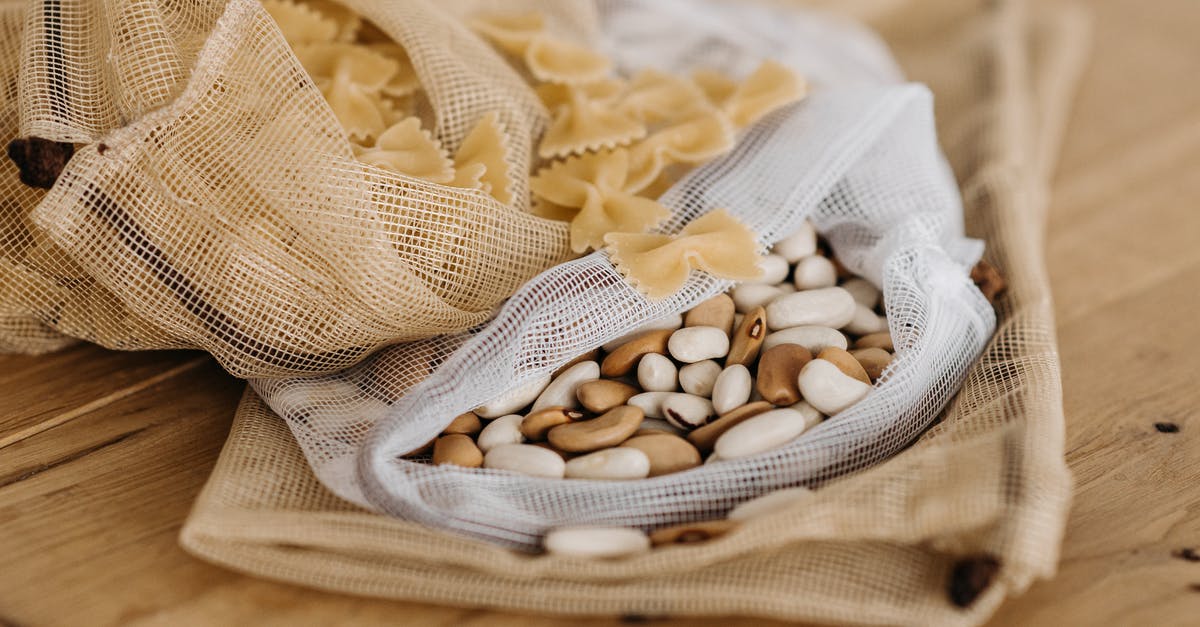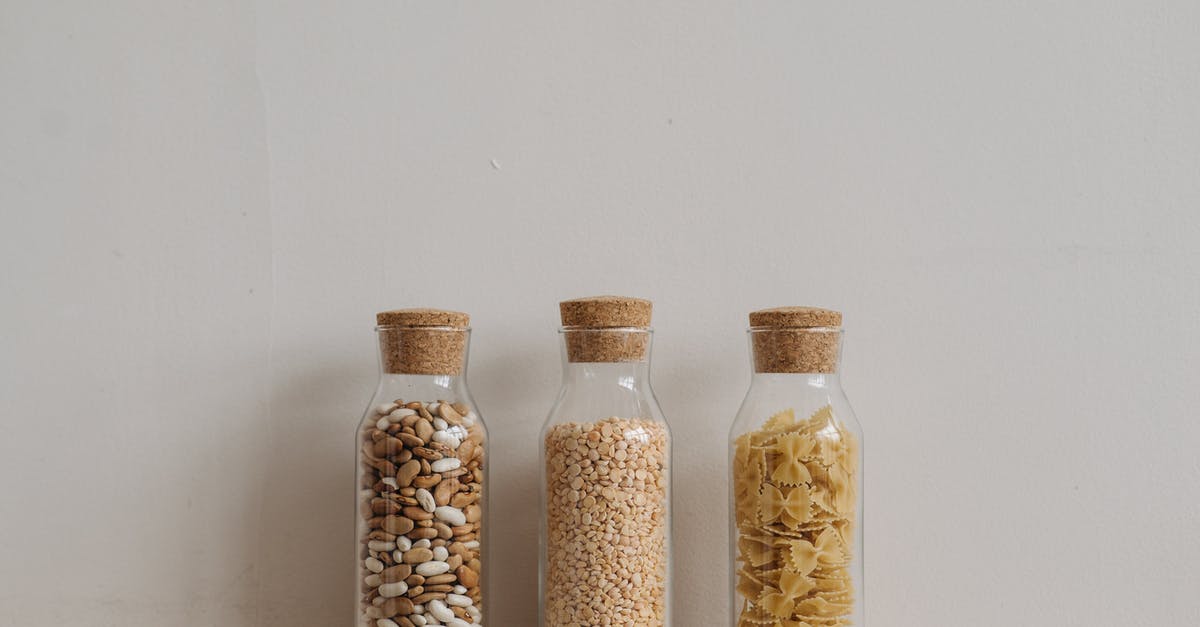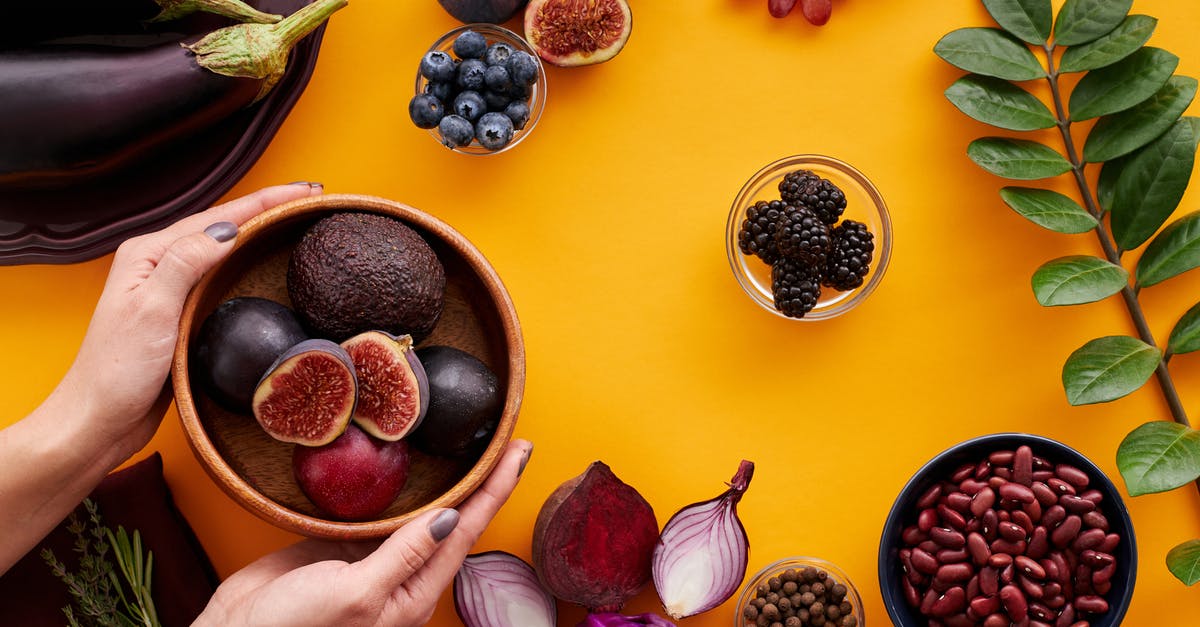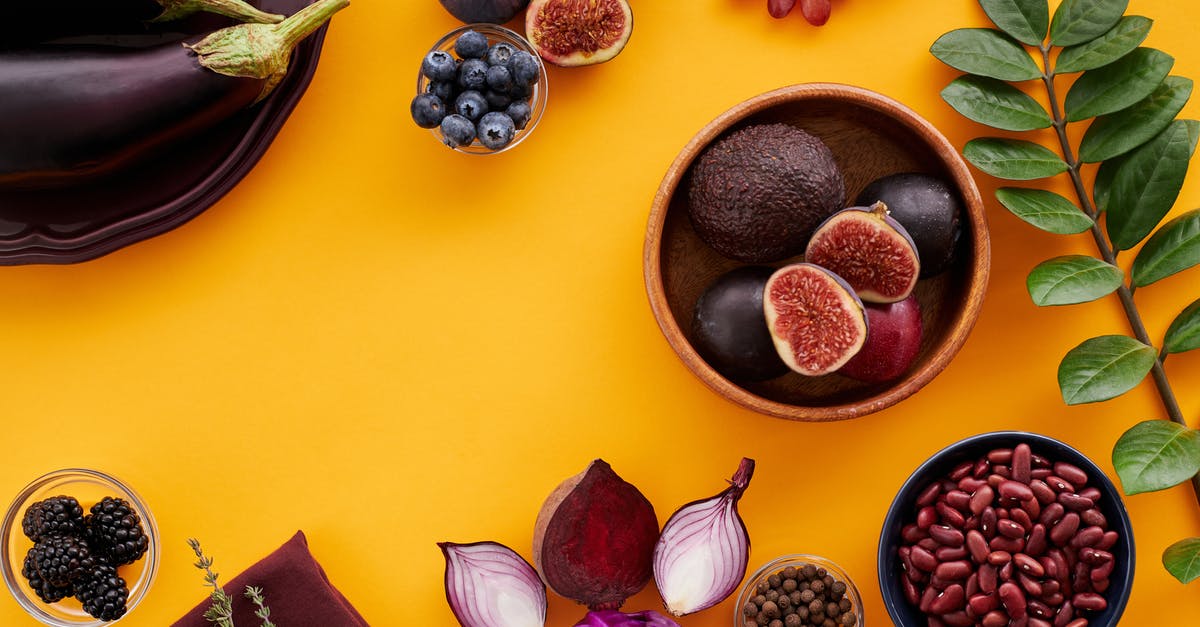Why won't my beans soften?

I have an old jar of 9 bean soup mix which is basically dried beans. In order to cook them, they must first be softened and according to some prior research a few methods exist, though the most common method is to soak the beans over night. I have done just that. They have been soaking for more than 12 hours now and they are still quite hard. When I began soaking them I used boiled water from the kettle so that the process might be sped up.
Is there a better way to go about this?
Would adding an acid help to soften the beans?
Am I doing something wrong?
Best Answer
Soaking beans will not soften them. If done for a very long time (i.e., days), some beans will eventually begin to sprout or ferment, at which point they will become softer. But that is generally not desirable for basic cooking.
Instead, you'll need to cook the beans to get them to soften. Bring to a slow boil and then simmer until the interior is the desired texture. (A common test is to take a few beans out on a spoon and blow on them; if the outside of the bean breaks open a bit when you blow, they are likely soft and cooked through.)
By the way, the main purpose of soaking is to hydrate the seed coat (the outer covering of the beans). Once that happens, the moisture can more easily penetrate the interior when cooked, allowing the beans to soften. If you don't soak, you'll simply waste the first part of your cooking hydrating the seed coat. Depending on the type of beans, their age, and other factors, that could increase your cooking time by anywhere from 15 minutes to an hour or so. (For more details, see my previous answer to another question here.)
Also, do NOT try using an acid. Acids can actually toughen the seed coat, making the beans take longer to cook and soften. This is one of the reasons chili recipes (for example) often recommend cooking the beans first, before adding to acidic ingredients like tomatoes.
(Note that cooking times for beans and lentils can vary significantly, depending on type of bean and age. For a mixed bean soup, I'd expect about 1-2 hours of simmering for pre-soaked beans, and perhaps as many as 3 hours. Older beans can take longer, and I've occasionally had old batches of dried beans which never quite softened to a consistent texture.)
EDIT: Just to add onto Joe's great advice from the Dry Bean Council, Harold McGee has this to say about beans which never soften (from On Food and Cooking):
"Hard-to-cook" beans... are normal when harvested, but become resistant to softening when they're stored for a long time -- months -- at warm temperatures and high humidities. This resistance results from a number of changes in bean cell walls and interiors, including the formation of woody lignin, the conversion of phenolic compounds into tannins that cross-link proteins to form a water-resistant coating around the starch granules. There's no way to reverse these changes and make hard-to-cook beans as soft as regular beans. And there's no way to spot them before cooking. Once cooked, they're likely to be smaller than normal and so may be picked out before serving.
McGee also mentions that occasionally you may encounter batches of "hard-seed" beans, which hardened during particularly hot and humid growing conditions. In such cases, the beans will be tough no matter how early they are used; they may take much longer to cook than usual (and sometimes may never soften).
Pictures about "Why won't my beans soften?"



How do you fix beans that are too hard?
The main reason for beans that are still hard after cooking is the quality of the beans. Drying beans preserves them for a long time, but not forever. Even if you just got them, they may have been sitting in the grocery store for months or longer. Choose dried goods from stores with a lot of turnover.Tame Impala - Why Won’t They Talk To Me? (2020)
More answers regarding why won't my beans soften?
Answer 2
Although we often think of beans as a long-shelf life product, you'll occassionally run across some older beans, cook them, and they just never get soft.
The US Dry Bean Council mentions in their FAQ:
How long can I store dry beans?
Dry beans keep up to a year in an airtight container in a cool, dry environment, away from direct sunlight. During storage, beans may either absorb or lose moisture, which will affect the soaking and cooking time. If stored longer than 12 months, or exposed to unfavorable storage conditions, beans may never soften sufficiently, no matter how long they’re soaked or cooked. On the other hand, some beans can cook up tender after years of storage. [...]
I soaked and cooked some dry beans that I had left in the pantry, but they didn't soften after cooking. Why?
Always use fresh dry beans if possible. Beans that have been stored for over 12 months or in unfavorable conditions may never soften.
Hard water may also cause hard beans. If the cooked beans still seem tough, add a 1/4 teaspoon sodium bicarbonate (baking soda) for each pound of beans to increase tenderness. While adding baking soda is an old trick, remember that the ingredient also may over-soften fresher dry beans, causing mushiness.
Add acidic foods, such as tomatoes, vinegar, lemon or calcium-rich molasses, near the end of the cooking time, because these ingredients may toughen the skins. [...]
Add salt just before serving to avoid toughening the bean skins.
Answer 3
If you have "hard water" (mineral-rich water, most common in well water, but my town water is this way) no amount of soaking or cooking is going to soften them.
If you go the "long soak" rehydration route, three tablespoons of salt per gallon of water will prevent the beans from toughening.
For the "quick soak" method, a quarter to half a teaspoon ("a pinch") of baking soda to the water will soften.
Christopher Kimball of "America's Test Kitchen" fame has an article on the basics of cooking beans.
Answer 4
If you have a pressure-cooker, cooking old beans is easy. Just cook the pre-soaked beans in the pressure-cooker about 10 minutes more than you normally would.
Answer 5
I beg to differ on the statement that beans will never soften in hard water, because that is what I have and there have been times where I missed the mark and overcooked to mushy beans, no baking soda added and with slightly old beans to boot! I also disagree on the claim that adding regular salt during soaking works. A whole pot of beans were wasted on that experiment. Even the pressure cooker couldn't save it. There are huge differences chemically between baking soda and table salt. They don't even possess the same periodic elements! There are also huge differences between chemical composition of water sources, and the Test Kitchen should be one of the first places to recognize this. It was pretty irresponsible of them to make this blanket statement before thoroughly testing it first.
As for the original question, soaking in advance does help in softening the beans in a way that allows for quicker cooking later on. You don't have to, but do you want your stove running for an hour or so, or for four hours? Also, some evidence exists that soaking and then discarding the soak water helps reduce the gassiness issue. Hope this information is helpful!
Sources: Stack Exchange - This article follows the attribution requirements of Stack Exchange and is licensed under CC BY-SA 3.0.
Images: Pavel Danilyuk, Pavel Danilyuk, Vanessa Loring, Vanessa Loring
